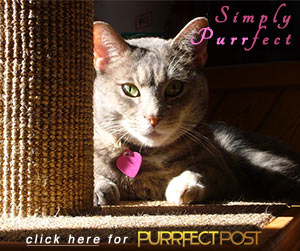Why Is My Cat Drooling?

It can be alarming to see your cat suddenly drooling, and sometimes it does mean there's a big problem. Take a look at the most common reasons for cat drooling and learn when you should get to the veterinarian.
Cats Don't Usually Drool
While some dogs drool routinely as part of their normal condition, cats rarely drool.
However, there is an occasional cat that will drool when emotionally stimulated. Usually, this occurs when the cat is extremely happy, such as when he or she is getting cuddled and petted by a beloved human. So if your cat drools a little when happy and at no other time, it is likely normal and harmless. All other drooling in cats indicates a problem.
Dental Conditions Commonly Cause Cats to Drool
Problems inside the mouth are a big reason some cats drool. This can include stomatitis, periodontitis, loose teeth, abscesses in the mouth or tooth roots, or oral cancer. Often, this type of drool is stinky and pretty constant.
Systemic Conditions Causing Mouth Ulcers Cause Feline Drooling
Some internal conditions can cause ulcerations of the mouth and subsequent drooling. Respiratory ailments, allergies, and viruses can all result in ulcers on the mucous membranes of the mouth, and drooling is often the result. Sores in the mouth also usually cause cats to rub at their mouths with their paws or on household items. Decreased or absent appetite is another common result of oral ulcers.
Nausea Causes Drooling in Cats
If a cat feels nauseous for any reason, he might drool. This is common in cats with gastrointestinal conditions, kidney failure, and car sickness.
Foreign Bodies Caught in the Mouth Cause Cats to Drool
If a cat has something caught in his mouth or throat, drooling is common, as is pawing at the mouth.
Neurologic Conditions Cause Feline Drooling
Some conditions that affect the nervous system can cause drooling in cats. This is usually because the ability to swallow has been compromised.
Rabies Causes Cats to Drool
While this is relatively rare, rabies virus does lead to drooling, so if a cat is not vaccinated against it and is drooling and acting strange, rabies must be a consideration.
Cats Drool from Toxin or Chemical Exposure
If a cat gets a toxin or chemical in his mouth, drooling is often the first sign of it. A cat might lick such a substance from a spill or get it on his paws when walking through an area it was used and then lick it off the fur. Additionally, if a cat is able to reach the spot on his body where spot-on flea or tick preventatives were applied, drooling can occur as well as other signs of systemic illness such as vomiting, muscle tremors, and seizures.
If your cat begins drooling and it's associated with any other signs of illness or is not directly attributable to emotional stimuli like petting or a car ride, you should visit a vet right away.


